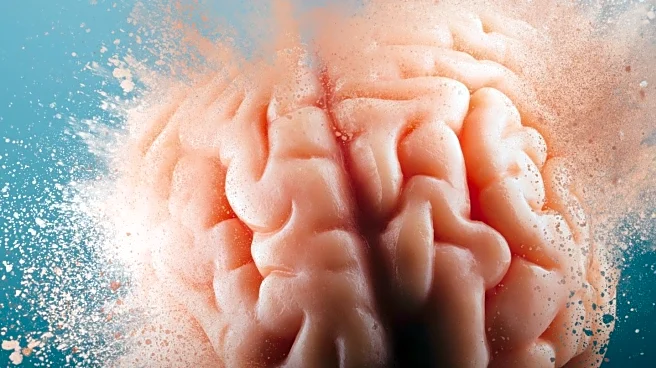What is the story about?
What's Happening?
Cognitive training, also known as brain training, is being highlighted by clinicians as an effective method to boost memory and thinking skills. This approach involves structured, progressive exercises that challenge the brain to improve recall and everyday memory tasks. Techniques such as self-quizzing, spaced learning, and interleaving are used to strengthen the brain's pathways for storing and retrieving information. Experts emphasize that cognitive training is not a passive process but requires deliberate practice to yield results. The method is likened to physical resistance training, where consistent challenges over time enhance memory efficiency.
Why It's Important?
The significance of cognitive training lies in its ability to provide lasting benefits for memory and cognitive function, particularly in older adults. Research indicates that regular cognitive training can lead to stronger thinking skills and improved recall, which are crucial for maintaining independence and quality of life. As the population ages, strategies that support cognitive health become increasingly important, potentially reducing the risk of dementia and other memory-related issues. This approach offers a non-pharmaceutical, cost-effective solution to enhance brain health, making it accessible to a wide audience.
What's Next?
Individuals interested in cognitive training can start by identifying specific areas for improvement, such as remembering names or retaining new information. Incorporating retrieval practices, spreading out learning sessions, and gradually increasing difficulty are recommended strategies. Combining cognitive exercises with physical activity and other healthy lifestyle habits can further support memory and cognitive function. As awareness of cognitive training grows, more people may adopt these practices, potentially leading to broader societal benefits in terms of mental health and aging.
Beyond the Headlines
Cognitive training not only aids memory but also encourages a holistic approach to brain health, integrating physical, mental, and lifestyle factors. This multifaceted strategy highlights the interconnectedness of body and mind, promoting overall well-being. As more research supports the effectiveness of cognitive training, it may influence public health policies and educational programs aimed at enhancing cognitive resilience across different age groups.















